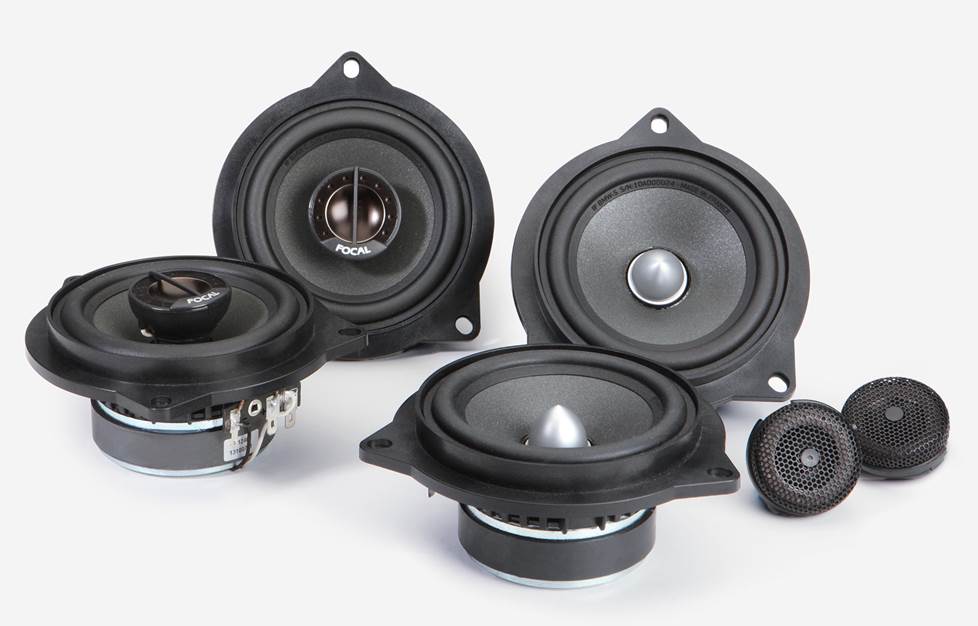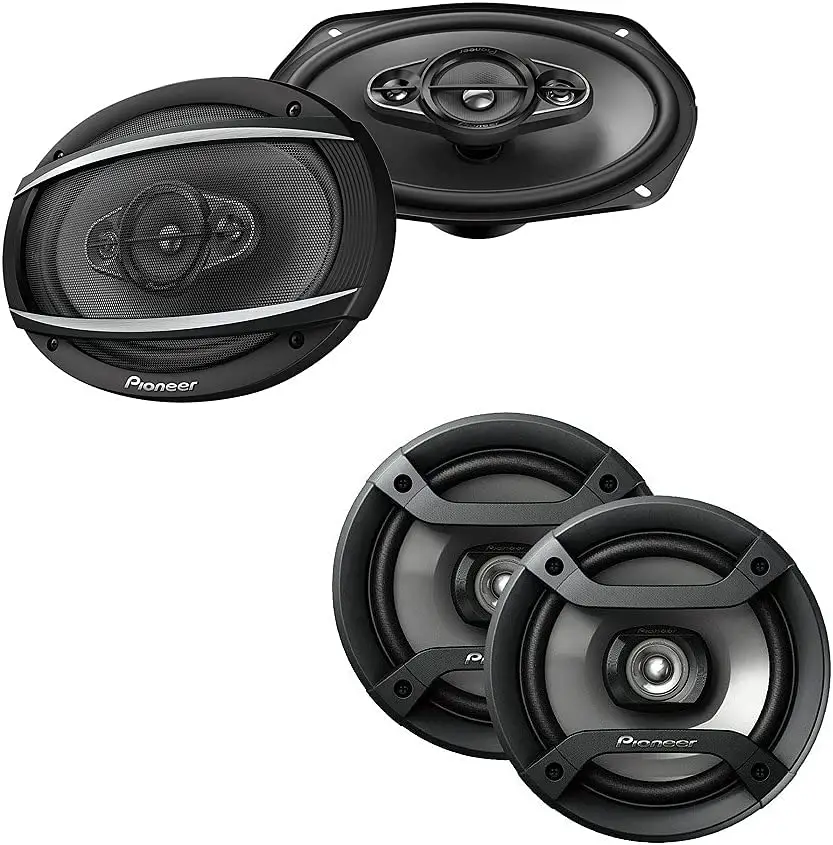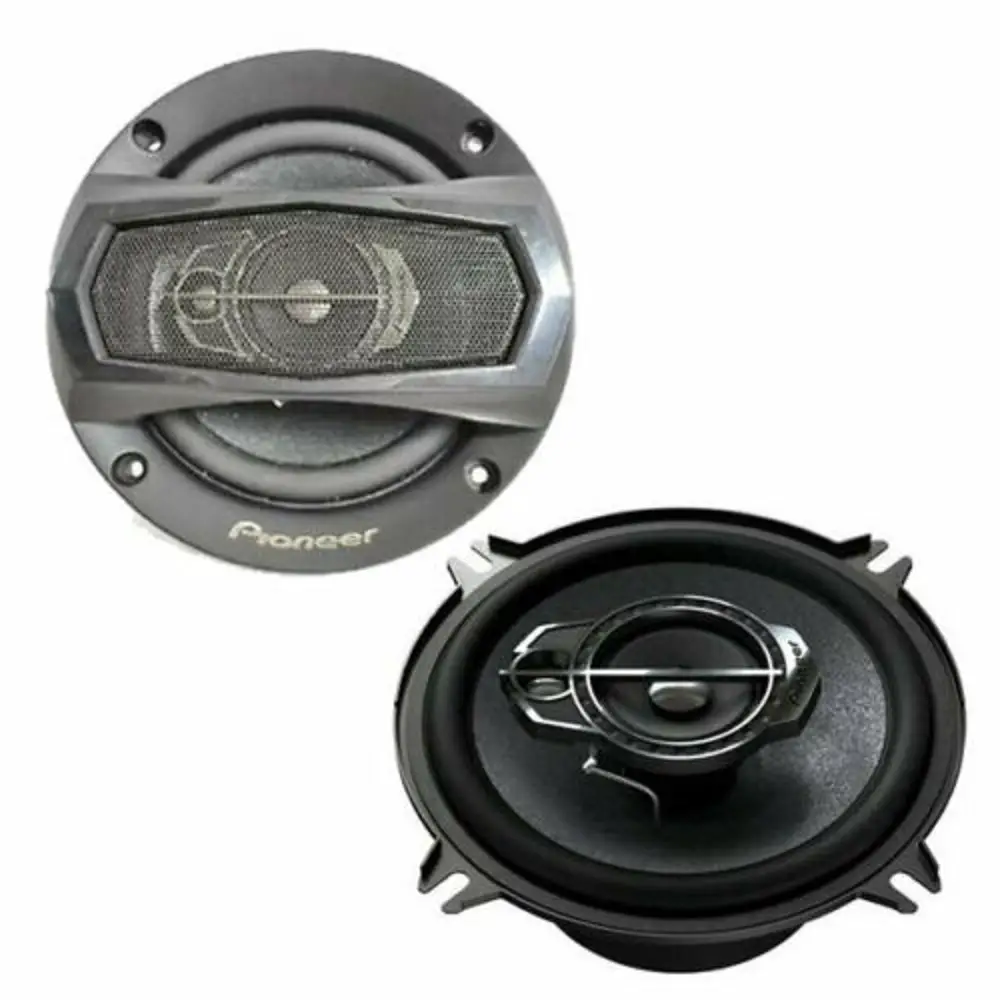When it comes to upgrading the audio system in your car, one question that often comes up is whether or not it’s okay to mix speaker brands.
The short answer is yes, you can mix speaker brands in a car, but there are certain factors to consider in order to ensure the best sound quality and performance.

This article will provide a detailed and comprehensive explanation of the concept of mixing speaker brands in a car, as well as the factors to consider and how to properly mix them for optimal results.
Factors to Consider When Mixing Speaker Brands
Compatibility:
One of the most important factors to consider when mixing speaker brands in a car is compatibility.
Not all speakers are designed to work with every car’s audio system, so it’s important to check the compatibility of the speakers with your car’s audio system before making a purchase.
You can check the car’s manual or speak with a professional to ensure compatibility.

Impedance and Sensitivity:
Impedance is measured in ohms and refers to the speaker’s electrical resistance to the current flowing through it.
Sensitivity, on the other hand, is measured in decibels (dB) and refers to how effectively the speaker converts power into sound.
When mixing speaker brands, it’s important to match the impedance and sensitivity of the speakers to ensure optimal performance.
Sound Quality and Frequency Response:
Another important factor to consider when mixing speaker brands is the sound quality and frequency response of the speakers.
Different speakers may produce different sound qualities, and some may have a better frequency response than others.
It’s important to compare the sound quality and frequency response of the speakers before making a purchase to ensure the best sound quality.
Power Handling Capabilities:
The power handling capabilities of a speaker refer to the amount of power the speaker can handle without causing damage.
When mixing speaker brands, it’s important to match the power handling capabilities of the speakers to ensure they can handle the same amount of power.
Brand Reputation and Customer Reviews:
Finally, it’s important to consider the brand reputation and customer reviews when mixing speaker brands.
Research the brands of the speakers you’re considering and read customer reviews to get an idea of the quality and performance of the speakers.
If you install a best quality speaker on one side and a poor quality unit on the other side of the car, the sound of the car audio system might be adversely affected, so it is important to ensure that both speakers are of similar quality.
It is also important to ensure that the amp used for powering the speakers matches their power handling capabilities.
Mixing speaker brands in a car can be done successfully with proper research and consideration of factors such as compatibility, impedance, sensitivity, sound quality and frequency response, power handling capabilities, and brand reputation and customer reviews.
By taking the time to do your research and properly match the speakers with your car’s audio system, you can enjoy the best possible sound in your car.
With this knowledge, you are now ready to upgrade the audio system.

How to Mix Speaker Brands in a Car
- First, it’s important to gather all the necessary tools and equipment for the installation, such as screwdrivers, wire cutters, and a wiring harness.
- Remove the old speakers from the car, taking note of how they were connected to the car’s audio system.
- Connect the new speakers to the car’s audio system using the wiring harness, making sure to match the color-coded wires. If your new speakers have different wiring than your old speakers, you may need an adapter to connect them.
- Carefully place the new speakers into the car, making sure they are securely fastened and properly aligned.
- Test the speakers to ensure they are working properly and adjust the sound settings as needed.
- It’s also important to note that you may have to adjust the equalizer settings to get the best sound quality when mixing speaker brands
Advantages and Disadvantages of Mixing Speaker Brands
Advantages:
- Mixing speaker brands can allow you to choose the best speakers for your car, rather than being limited to one brand.
- It can also give you the opportunity to achieve a better balance of sound quality and performance.
- Mixing speaker brands can also offer a good balance of cost and performance.
Disadvantages:
- Mixing speaker brands may require more research and planning to ensure compatibility and performance.
- It’s also possible that the sound quality may not be as consistent as when using speakers from the same brand.
- If not done properly, it can also lead to mismatched sound quality and poor performance.

Conclusion
Mixing speaker brands in a car can be a great way to achieve the best sound quality and performance, but it’s important to consider compatibility, impedance and sensitivity, sound quality and frequency response, power handling capabilities, brand reputation and customer reviews before making a purchase.
It’s also important to follow proper installation instructions and troubleshoot any issues that may arise.
Overall, mixing speaker brands can be a great option for those who want to get the best sound quality and performance, but it’s important to do the research and plan ahead to ensure the best results.
Can I mix different types of speakers in my car, such as a combination of coaxial and component speakers?
Mixing different types of speakers, such as a combination of coaxial and component speakers, can be done, but it’s important to consider the compatibility and power handling capabilities of the speakers before making a purchase.
It’s also recommended to consult a professional or refer to the car’s manual to ensure that the different types of speakers can work together in the car’s audio system.
Can I mix speakers of different sizes in my car?
Mixing speakers of different sizes in a car can be done, but it’s important to consider the compatibility and power handling capabilities of the speakers before making a purchase.
It’s also important to ensure that the speakers are properly aligned and securely fastened in the car to ensure the best sound quality and performance.
What are the best brands to mix in a car audio system?
The best brands to mix in a car audio system will depend on personal preference and the specific needs of the car’s audio system.
It’s important to research different brands and read customer reviews to get an idea of the quality and performance of the speakers. Generally speaking, JBL, Kenwood, Pioneer, JVC, and Sony are some of the popular brands in this area.
Is it necessary to install an amplifier when mixing speaker brands in a car?
An amplifier is not necessarily required when mixing speaker brands in a car, but it can help to improve the overall sound quality and performance of the speakers.
It’s important to consider the power handling capabilities of the speakers and the car’s audio system before making a decision on whether or not to install an amplifier.
Can I mix a subwoofer of one brand with speakers of another brand in my car?
Mixing a subwoofer of one brand with speakers of another brand in a car can be done, but it’s important to consider the compatibility and power handling capabilities of the subwoofer and speakers before making a purchase.
It’s also important to ensure that the subwoofer and speakers have similar frequency response and sound quality to ensure the best overall performance.
